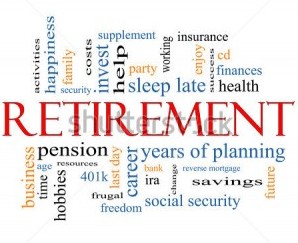What is a retirement annuity?

A retirement annuity is a plan from an Insurance Company that guarantees to pay a certain level of income for the rest of the life of the individual – the Annuitant.
The income from a retirement annuity is taxable (unless it stems from pre-75 Death Benefits) like any other income and will be added to such things as any State Retirement Pension being paid to determine the overall level and rate of taxation.
As the income from a retirement annuity is taxable, generally people drawing their retirement benefits are often best advised to firstly draw their Pension Commencement Lump Sum (previously and still generally known as the “Tax Free Cash”) before buying the annuity. I say, “often”, as Clients with special terms available, such as a “Guaranteed Annuity Rate” may be best advised to maximise their income.
The rate of income from a retirement annuity depends upon a number of factors, including:
-
The Insurance Company’s expected investment return.
The investment return the Insurance Company expects to earn on the money used to purchase the retirement annuity (that investment risk is the Insurance Company’s not the Annuitant’s). Generally, that investment return is determined by the income (yield) that can achieved from investing in British Government Fixed Interest securities, often known as “Gilts”. For most of the past dozen years or so, annuity rates have been at all-time lows, but 2023 is proving to be a “sweet spot” because of higher interest rates and, consequently, gilt yields. This renaissance is unlikely to last long into 2024.
-
The age and life-expectancy of the Annuitant.
Buying a retirement annuity is one of the few times when dealing with an Insurance Company that it pays to be in poor health, to have made poor lifestyle choices and/or to have worked in a physically demanding job. The shorter the life-expectancy, the higher the annuity!
-
The features requested.
The “benchmark” for a retirement annuity is one that never increases, is paid to a single individual and dies with them. As soon as other benefits are added-in, such as indexation (a rising income in line with inflation), a guaranteed payment period of between 1 and 40-years, a surviving spouse pension of 50%, 66% or even 100%, etc., the lower the starting income is.
-
General longevity of the population.
The longer we all live, the longer Insurance Companies have to pay retirement annuities and, therefore, windfall profits from early deaths are limited. Consequently, the lower overall rates are.
-
Equality legislation.
Equality legislation means that that a differential retirement annuity rates between men and women, despite the evidence of women being generally longer-lived than men, is discriminatory. Consequently, this exerted downward pressure on retirement annuity rates.
-
Regulatory requirements.
Stricter rules, enforced by the Regulator, have reduced the profit margins and pushed down returns.
-
Government policy.
The introduction of pension freedoms in 2015 has lead to a significant reduction in the sale of annuities, pushing down the income return further.
To pick a route through the minefield of retirement annuities is extremely complex, so professional advice is a must. Remember, the decision to purchase a retirement annuity is final; once the decision is made there is no going back.
Legislation which came into effect in April 2015, whilst increasing choice, will make the decision of what best to do to generate an income in retirement even more complicated than it is already – see my blog. So, the need for expert, professional advice is even more essential.
More Information
If you want more, unbiased information, visit the Money Helper website.
What next?
If you are about to retire, talk to me first, by completing the form below.







-

-

-

0800 074 8755info@clivebarwell.co.uk